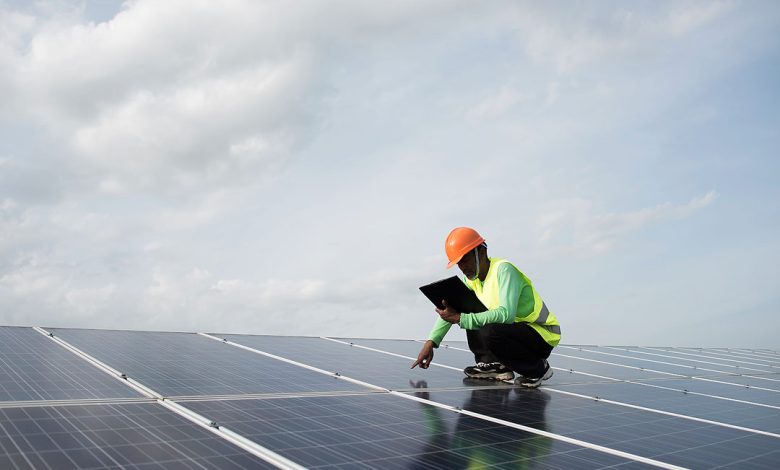Gov’t urged to hasten renewable energy dev’t

By Jenina P. Ibanez, Senior Reporter
THE PHILIPPINE government must speed up the development of renewable energy sources to lessen its dependence on costly fossil fuels that have made the country vulnerable to inflationary pressures, analysts said.
John Paul R. Rivera, an economist at the Asian Institute of Management, said the Philippines can position itself as an advocate of renewable energy by further developing wind and geothermal power infrastructure.
“The Philippines’ dependence on oil is the very reason why inflation is relatively high. Diversifying energy sources would allow the Philippines to manage its energy sources thereby limiting oil prices’ effects on inflation,” he said in an e-mail.
Inflation in the country eased to a three-month low of 4.6% in October as food price hikes slowed. This was the third straight month that inflation exceeded the 2-4% target of the Bangko Sentral ng Pilipinas (BSP) for the year. Inflation has topped the BSP target this year except in July.
Rising oil prices have prompted legislators to move to temporarily suspend or lower the excise tax on some fuel products, while government agencies set aside cash grants for public utility drivers affected by soaring pump prices.
In an effort to temper rising prices and ease shortages, US President Joseph R. Biden has asked the world’s top oil producers to increase production even as he pushed for reducing carbon emissions at the recently concluded 26th United Nations Climate Change Conference (COP26) in Glasgow.
The Philippines is, meanwhile, asking wealthier economies for financing to fund its climate risk mitigation efforts.
Finance Secretary Carlos G. Dominguez III, who led the Philippine delegation to COP26, has been pushing for more climate financing from wealthier economies that have not offered enough to help developing nations reduce their carbon footprints. Such countries bear the most responsibility for their historic emissions, he said in the lead up to the conference.
The country could benefit from climate financing that would back the development of renewable energy, University of Asia and the Pacific Senior Economist Cid L. Terosa said.
“It is difficult for developing countries like the Philippines to counter higher oil prices by transitioning to renewable energy consumption without financial and technical assistance from developed countries,” Mr. Terosa said in an e-mail.
“The Philippines should call for the facilitation of foreign and local sustainable financing initiatives that will help put in place infrastructure and projects that will promote the transition to greater dependence on renewable energy.”
The Philippines has committed to reduce greenhouse gas emissions by 75% from 2020 to 2030. Of the 75% target, just 2.71% can be achieved with internal resources, while the remaining 72.29% would rely on international assistance.
“(The) increase in gas and oil prices is part of the instability of fossil-fuel based energy and (its) impact on our economy underscores the risks and negative effects of dependence on such energy, especially if these are mainly imported, as in the case of the Philippines,” Asian Peoples’ Movement on Debt and Development Coordinator Lidy B. Nacpil said in an e-mail.
“Instead of prolonging this dependence, this is a reminder of the urgency of accelerating the development of renewable energy which is more affordable and can be generated domestically.”
The Asian Development Bank has partnered with the Philippines and Indonesia to launch an energy transition mechanism which aims to fund the early retirement of coal-run power plants and replace them with renewable energy alternatives.
As of end-2019, renewables accounted for 20.8% of the Philippines’ power mix, based on estimates from the Department of Energy.
A draft of the department’s renewable energy plan said that it is aiming for a 55.8% renewable energy share by 2040.
“The Philippines should not only call for greater accountability from Western countries that have contributed to greater greenhouse gas emissions, but it should also clamor for the conversion of accountability into realistic and actionable policies and programs to mitigate the effects of climate change,” Mr. Terosa said.




